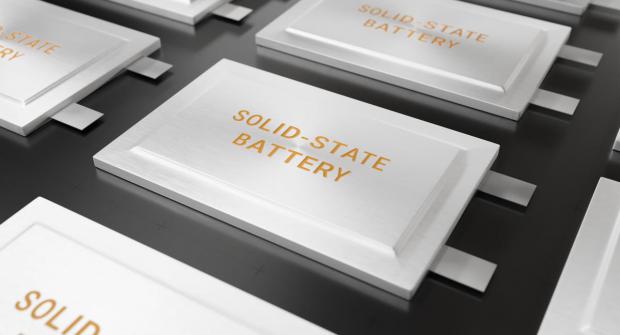
Breaking News
 The #1 Most Dangerous Fat in the World!
The #1 Most Dangerous Fat in the World!
 Is $140K the New Poverty Line? Is This the End of America's Middle Class?
Is $140K the New Poverty Line? Is This the End of America's Middle Class?
 Here Are the NEWLY RELEASED Epstein Images Tied to Powerful Democrats
Here Are the NEWLY RELEASED Epstein Images Tied to Powerful Democrats
 Joe Biden Still Struggling to Raise Money for Presidential Library – No New Donations...
Joe Biden Still Struggling to Raise Money for Presidential Library – No New Donations...
Top Tech News
 This tiny dev board is packed with features for ambitious makers
This tiny dev board is packed with features for ambitious makers
 Scientists Discover Gel to Regrow Tooth Enamel
Scientists Discover Gel to Regrow Tooth Enamel
 Vitamin C and Dandelion Root Killing Cancer Cells -- as Former CDC Director Calls for COVID-19...
Vitamin C and Dandelion Root Killing Cancer Cells -- as Former CDC Director Calls for COVID-19...
 Galactic Brain: US firm plans space-based data centers, power grid to challenge China
Galactic Brain: US firm plans space-based data centers, power grid to challenge China
 A microbial cleanup for glyphosate just earned a patent. Here's why that matters
A microbial cleanup for glyphosate just earned a patent. Here's why that matters
 Japan Breaks Internet Speed Record with 5 Million Times Faster Data Transfer
Japan Breaks Internet Speed Record with 5 Million Times Faster Data Transfer
 Advanced Propulsion Resources Part 1 of 2
Advanced Propulsion Resources Part 1 of 2
 PulsarFusion a forward-thinking UK aerospace company, is pushing the boundaries of space travel...
PulsarFusion a forward-thinking UK aerospace company, is pushing the boundaries of space travel...
 Dinky little laser box throws big-screen entertainment from inches away
Dinky little laser box throws big-screen entertainment from inches away
 'World's first' sodium-ion flashlight shines bright even at -40 ºF
'World's first' sodium-ion flashlight shines bright even at -40 ºF
Mass-Produced Solid State Batteries At Least 10 Years Away: StoreDot

Extreme fast charge battery tech company StoreDot says that mass-produced solid state batteries are at least 10 years away from mass production.
The Israel-based startup believes global automakers should be considering interim technologies in the medium term, such as semi-solid batteries.
While solid state batteries promise cost-effective fast and safe charging batteries, as well as high energy densities, StoreDot argues that they remain a work in progress and still face significant challenges before they can be manufactured at scale.
"It's crucial that leading battery developers like StoreDot give global automotive manufacturers a realistic and hype-free roadmap for the introduction of extreme fast-charging battery technologies. Right now, despite some of the bullish claims by our rivals, all-solid-state batteries are still at least 10 years away. They are certainly no silver bullet for any vehicle maker currently developing fast charging electric vehicle architectures."
Dr Doron Myersdorf, StoreDot CEO
The executive believes a more practical step is the introduction of semi-solid-state batteries, which StoreDot is targeting for mass production by 2028. Myersdorf says these will be advanced, safe, high performing cells that can achieve 100 miles (161 kilometers) of charge in just three minutes.
Furthermore, they have the additional benefit of requiring a simpler and less challenging manufacturing process than all solid state technologies. Solid state batteries use solid electrolytes instead of the liquid or polymer gel electrolytes found in current technologies such as lithium-ion or lithium polymer batteries.



